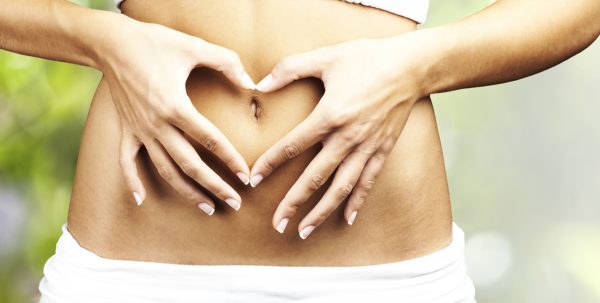Hormonal imbalances can have a significant impact on mood, sleep, digestion, metabolism and the female reproductive system. Learning about how to balance hormones is about understanding what hormones are and the role gut health plays.
Over the past decade, research into gut health has expanded and reshaped what we know about the human body and disease. The gut not only has an effect on the gastrointestinal system, but also on the body as a whole. Knowing how to balance hormones, is about starting at the gut. The gut and hormones talk in a connection known as the gut hormone connection. This particularly plays a role in women’s health with hormones and oestrogen driven diseases. As well as sleep and stress. What to know how to balance hormones, then read on.
What are hormones?
Hormones are the body’s chemical messengers. They travel in your bloodstream to tissues or organs to help them do their work. They affect many different processes, including:
- Growth and development
- Metabolism
- How the body gets energy from the foods you eat
- Sexual function
- Reproduction
- Mood

What is the microbiome?
The Microbiome describes the trillions of gut bacteria that live in your gut. They play a role in digestion, mood control, immunity and hormones.
Today, we look deeper into the connection known as the gut hormone connection and how to balance your hormone buy supporting it with nutrition and lifestyle changes.
Gut Bacteria and Oestrogen
Oestrogen is a female sex hormone that has many roles in the body including:
- Growth of the breasts
- Growth of pubic and underarm hair
- Start of menstrual cycles
- Helps control the menstrual cycle and is important for childbearing.
- Keeps cholesterol in control
- Protects bone health
- Affects your brain (including mood), bones, heart, skin, and other tissues
Recent research has shown that the estrobolome controls the oestrogen in the body. The estrobolome is a specific group of microbes. Consequently, when there is an imbalance in the gut bacteria, the estrobolome releases a large amount of an enzyme called beta glucuronidase, this causes oestrogen to be continually cycled in the body. For instance, with certain breast cancers, endometriosis and fibroids, oestrogen is a driver. Therefore, the increased circulating oestrogen exacerbates symptoms. Beta glucuronidase is also increased by a dysbiotic gut. High fat, high protein diets (typical western diet) increase levels of beta glucoronidase. Therefore, increasing circulating oestrogen. Whereas diets high in vegetables and fibre, decrease the levels of beta glucoronidase. Vegetables and fibre help to excrete oestrogens.
Gut Bacteria and Sleep
Besides, oestrogen, the gut also affects sleep. Studies researching gut bacteria and sleep have found that the microbiome may affect sleep in the following ways:
- By shifting circadian rhythms
- Altering the body’s sleep-wake cycle
- Affecting hormones that regulate sleep and wakefulness.
- Melatonin, the hormone that regulates sleep is also affected by the gut bacteria.

Gut Bacteria and Stress & Mood
Gut bacteria play a role in the stress and mood response in the body. This is often known as the gut brain connection which we have discussed in previous blogs. Read more here.on the gut Brain Axis.
Gut Bacteria and Thyroid hormones
The Gut and thyroid function are also linked. Changes in thyroid function can lead to dysfunction in the gut. A reduction in stomach acid, bile flow, pancreatic enzymes and bowel motility can occur. In addition, increased inflammation and incidence of Leaky Gut Syndrome.
How to Balance Hormones
Gut health is the key….
If you are experiencing symptoms of hormonal imbalance then improving your gut is key to improving the connection and optimising heath. For example, symptoms as fatigue, insomnia, inflammation, anxiety, digestive issues, period pain could benefit from the following tips.
Things that can help improve gut health and the gut hormone connection:
Add Fibre
In relation to the gut hormone connection, Fibre has many benefits:
- Fibre helps to excrete oestrogen which is important in diseases of where oestrogen is the driver or in excess. Certain cancers like breast, endometriosis and fibroids can benefit from fibre in the diet.
- Studies have shown that high fibre has a protective factor for breast cancer
- Fibre helps to feed the good bacteria in the gut.
Lower beta glucoronidase:
- Eat foods high in glucuronic acid. Apples, brussel sprouts, broccoli, cabbage, lettuce and oranges.

Support a healthy gut lining and gut bacteria:
- Eat cultured or fermented foods. Sauerkraut, kim chi, yoghurt, kefir, kombucha and kvass. Try our Kvass recipe here.
- Eat prebiotic foods that are high in soluble fibre, which promote the growth of good bacteria. Banana, chicory, asparagus and jerusalem artichokes. onions and leeks.
- Take a prebiotic supplement if needed. Inulin, acacia or pysllium.
- Take a probiotic supplement. Lactobacillus and bifidobacterium strains can be helpful in decreasing bacteria that produce beta glucoronidase and help to excrete oestrogens.
- Include culinary spices in your cooking. To help promote growth of good bacteria and suppress pathogenic bacteria include oregano, black, cayenne pepper and ginger.
- To promote the growth of both lactobacillus and bifidobacterium, eat black, cayenne pepper, cinnamon, ginger, oregano, rosemary and turmeric These strains help in decreasing beta glucoronidase producing bacteria.
- Eat Omega 3’s containing foods (fish, chia seed and walnuts) as they help to promote the growth of Lactobacillus strains.
Follow a low Toxic Lifestyle
High Toxic load can exacerbate symptoms in many diseases and make gut health worse. Toxic load comes from diet, stress alcohol, drugs, pharmaceuticals, pollutants and chemicals. For instance, things like oral contraceptive pill, pain medications, living in a busy city, chemicals in cosmetics, hair and body care. To find out more information about how to lead a low toxic lifestyle, join our membership program.
Most importantly, knowing how to balance hormones is about supporting the gut hormone connection. Putting in place gut supporting practices like eating a wholefoods diet, including pre and probiotics is a great place to start on the track to balancing hormones.
If you want to learn more about how to balance your hormones by supporting your gut health? Then join the Wholefoods, Low Tox Mums Membership
Disclaimer:
All content and media on The Gut Healing Community Website is created and published online for informational purposes only. It is not intended to be a substitute for professional medical advice and should not be relied on as health or personal advice.
Always seek the guidance of your doctor or other qualified health professional with any questions you may have regarding your health or a medical condition. Never disregard the advice of a medical professional, or delay in seeking it because of something you have read on this Website.



